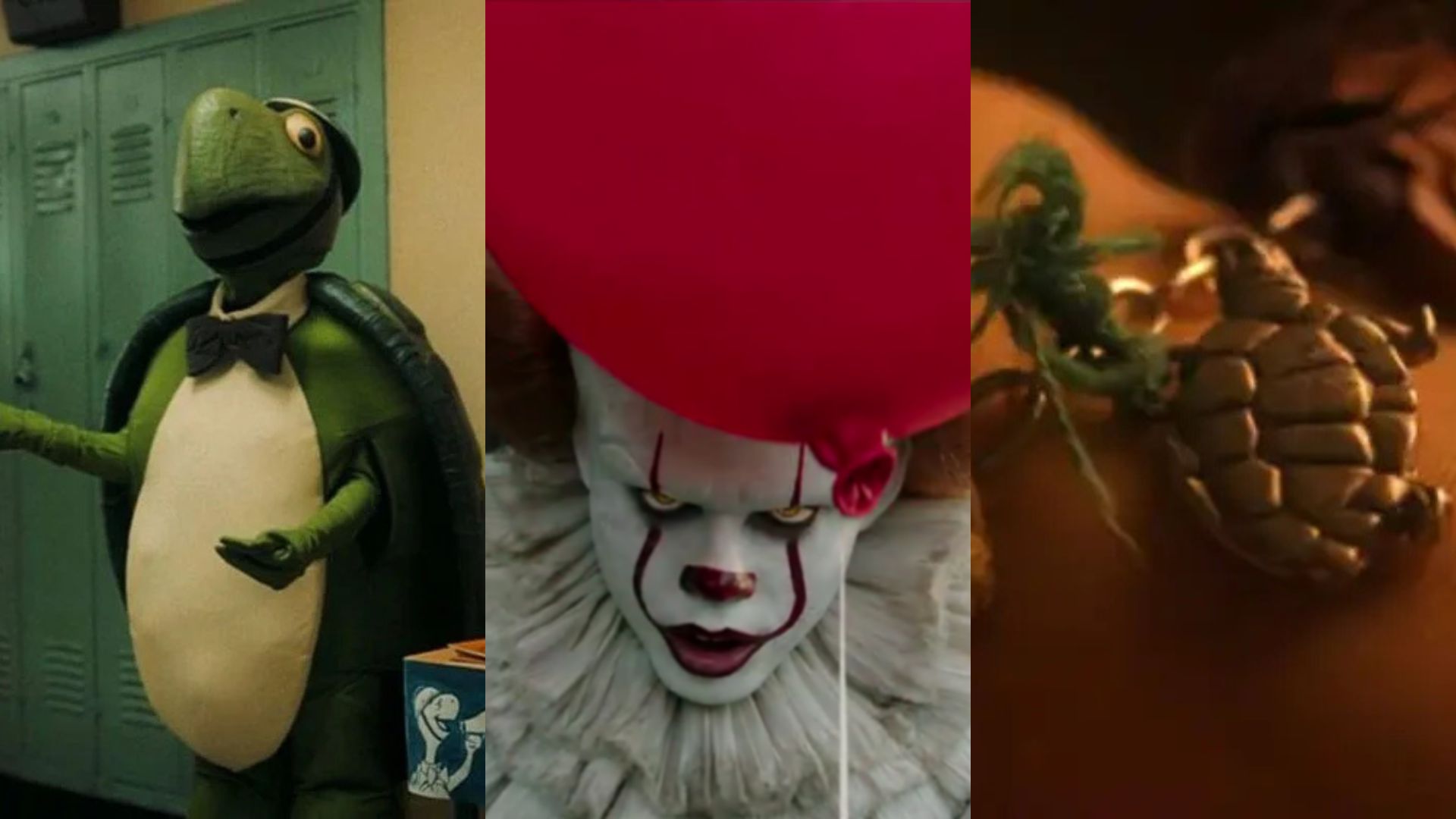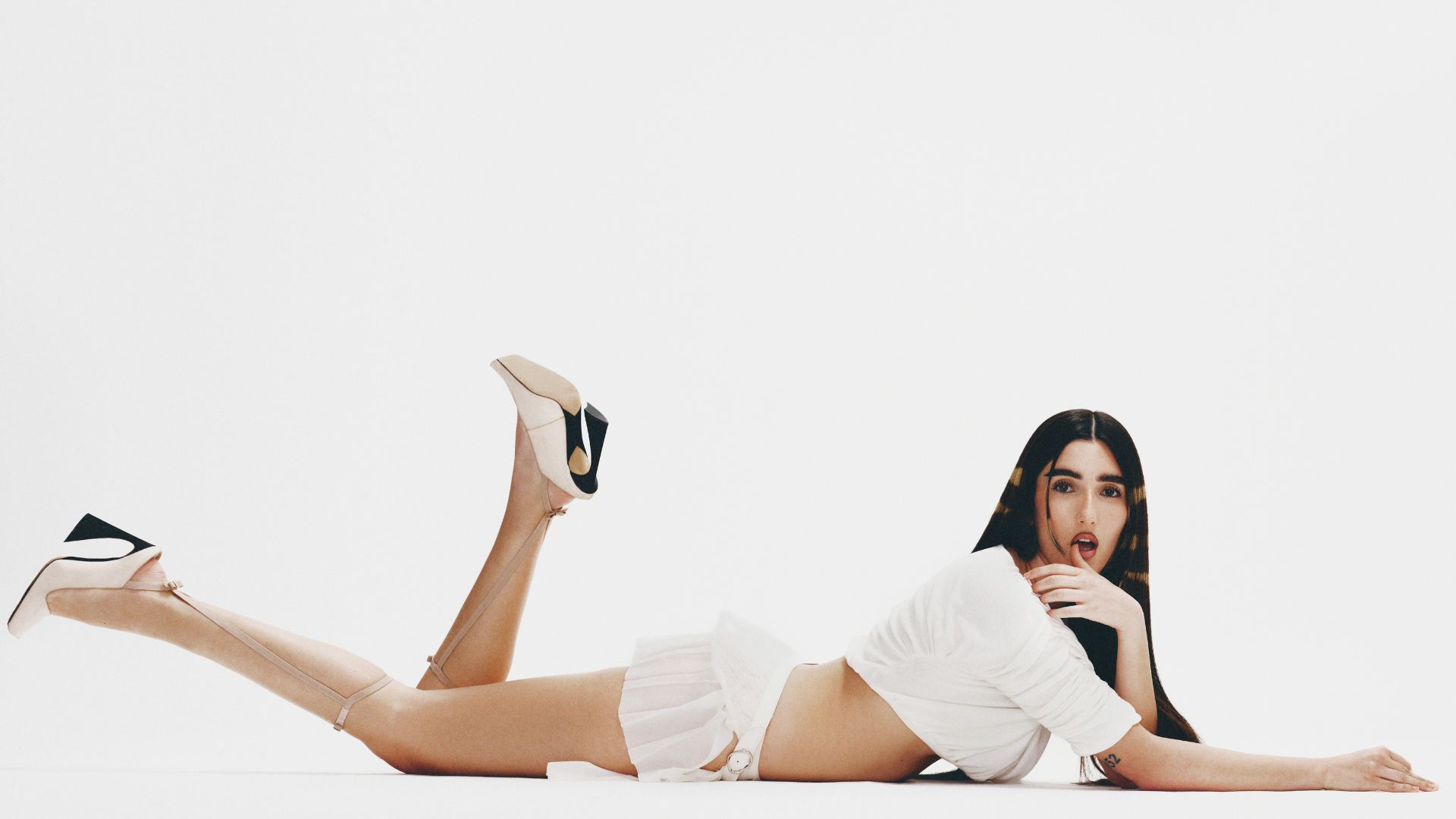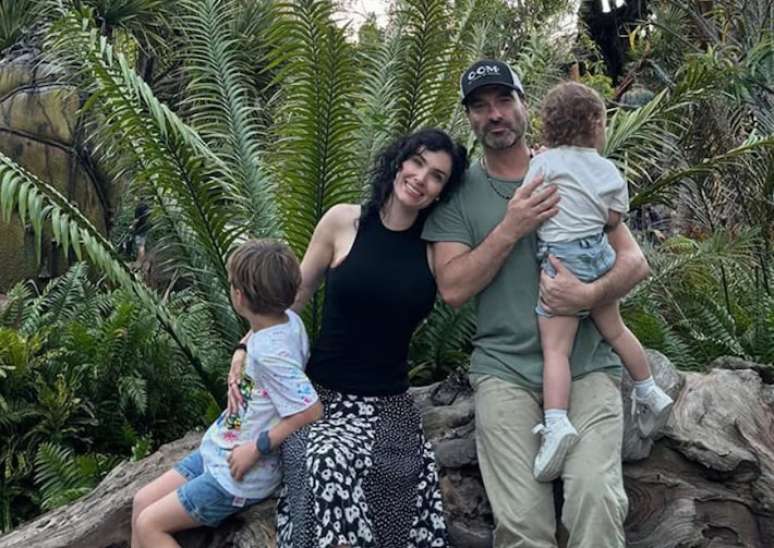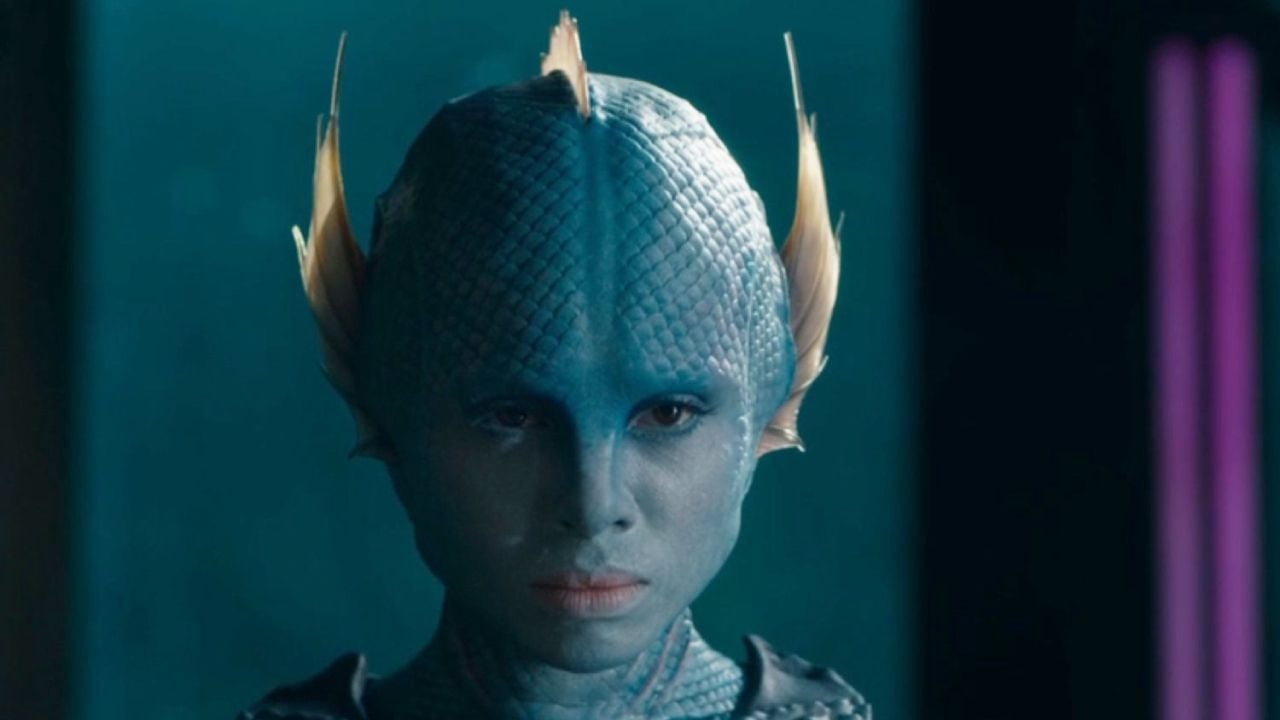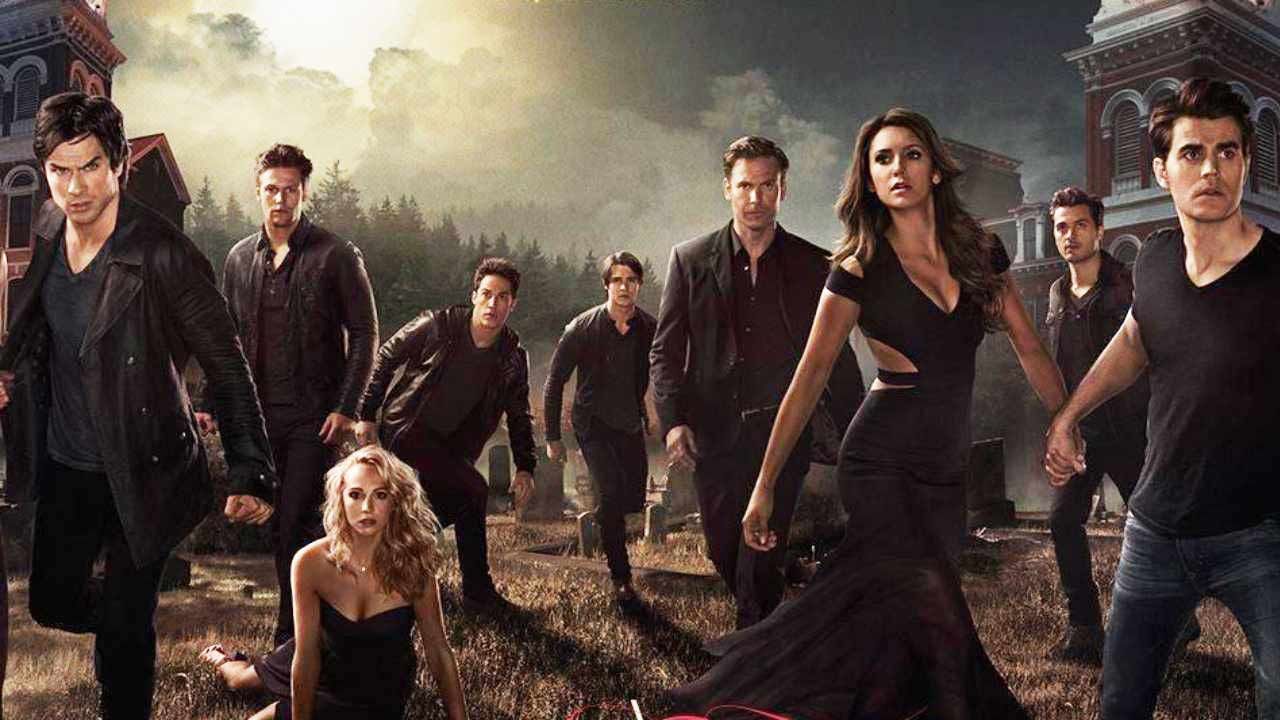Japanese punk quartet that won over Jack White and Dave Grohl performs for the first time in the country this Sunday, 2nd, at Parque Ibirapuera
Four women take the stage wearing vibrant and colorful costumes. Within seconds, the calm turns into organized chaos. Distorted guitars tear through the air, drums sound like a rhythmic machine gun, and acidic vocals cut through any trace of silence. Welcome to the universe of Otoboke Beaverthe punk rock quartet from Kyoto who are about to shake up Ibirapuera Park this Sunday, November 2nd, in their debut in Brazil.
Formed by Accorinrin (guitar and vocals), Yoyoyoshie (guitar and vocals), Hirochan (bass and vocals) and Kahokiss (drums and vocals), the Japanese group represents one of the most daring bets of the new generation of global punk. It’s no wonder that rock legends like Jack White — who called Yoyoyoshie from “my new favorite guitarist” —, Dave Grohl and Eddie Vedder have already bowed before the band’s hypnotic intensity.
With three albums under his belt — Okoshiyasu!! Otoboke Beaver (2016), ITEKOMA HITS (2019) and Super Champion (2022) —, the quartet conquered festival stages such as Coachella, Glastonbury and Lollapaloozabringing his devastating energy and sharp lyrics to audiences around the world. Now, São Paulo will have the chance to feel firsthand why the Otoboke Beaver is considered one of the most overwhelming forces in contemporary rock.
The presentation takes place within the ecosystem INDIGOcuratorial project by 30e which also brings together Weezer, Block Party, Mogwai and Judeline in the External Audience of the Ibirapuera Auditorium. But be careful: when the Otoboke Beaver enter the scene, there will be no room for arms crossed. As they themselves reveal, the Brazilian audience promises to be very different from the Japanese.
Japanese audiences traditionally consume a lot of melodic and pop music. What’s it like being a noisy, chaotic punk/hardcore band in Japan? Do you feel like you’re swimming against the current, or is there a strong underground scene that supports what you do?
Yoshie: We don’t define ourselves by gender, so I don’t really get that feeling. It’s more like we’re swimming comfortably anywhere.
Bands like Boredoms and High-Lows helped shape Japanese punk and noise rock. How do you see the Japanese alternative scene today? Is it growing, transforming, or do you feel a little alone in this fight?
Yoshie: Music isn’t necessarily the only thing that influences music, and now that we’re in an era where various types of information are easily accessible, I think the Japanese music scene has become quite diverse. But still, I feel like Boredoms and High-Lows are in the center, and from there various types of music spread.
Kyoto is known worldwide for its tradition, temples and classical culture. What is it like to create such a chaotic and transgressive sound in a city with this identity? Does the Kyoto environment influence your music in any way?
Acco: The Kyoto where I was born and raised was a peaceful and beautiful city, but in the university music club I attended in Kyoto, we were not accepted. I always felt the atmosphere of a closed community, and maybe I had a feeling of wanting to destroy that, but I think I would have felt the same if I hadn’t been living in Kyoto.
Does “Otoboke Beaver” have a specific meaning or story behind it? How did this name come about?
Acco: We formed the band in our first year of university, and at that time we didn’t expect to continue for so long. We just randomly picked the name of a motel near the town’s high school. Yoshie and our then bassist. “Beaver” is slang for female genitalia, and I thought “crude female genitalia” sounded funny.
You’ve received incredible praise from rock legends like Jack White and Dave Grohl. How do you feel as a band to receive this massive recognition from global rock icons?
Yoshie: I’m truly honored, and it’s given me a little more confidence in my weird style of playing.
You opened shows for Foo Fighters, Jack White, Green Day and Red Hot Chili Peppers. Which opening act was the most memorable and why? Are there any other bands you would like to work with or open for in the future?
Yoshie: They were all the best! If there is a band that wants us, we will go anywhere in the world!
Do you know anything about Brazilian music or the punk scene? What do you hope to find in the public here? Do you notice any differences between playing in Asia, the United States, Europe and now South America?
Yoshie: I originally didn’t listen to punk music and don’t know much about it. I’m really looking forward to experiencing the Brazilian punk scene first hand! Japanese audiences always watch us with their arms crossed as if they were in an art museum, but in other countries people dance and sing freely, and seeing that from the stage makes me very happy too.
Most of your lyrics are in Japanese. How do you feel the message and emotion of the songs reach audiences who don’t understand the language? Does the music speak for itself?
Acco: I think it depends on the person. When we listen to music from outside, we also don’t instantly understand all the meanings. But with artwork and liner notes, if it’s a song or artist you really like, you investigate on your own. Even if someone doesn’t understand the lyrics, if they find our music interesting, that’s all. I don’t want anything more than that.
What is the experience like being an all-female band in a historically male-dominated genre? Do you feel like you need to prove something or has that never been an issue?
Acco: I ask this kind of question itself, both in Japan and abroad. There is no such thing as “men dominated”. There have always been women who have been active in each era. I don’t like being grouped as a “girl band”. We’re just an ordinary rock band from the Far East. Furthermore, I have no intention of being anyone’s spokesperson. I just shape what I personally find interesting at the moment, and I’m not doing anything noble.
On stage you are intense, chaotic and explosive. Who are you when you leave the stage? Is there a big contrast between your artistic persona and who you are in everyday life?
Acco: There is a difference, but people are multifaceted, so I can’t and don’t want to explain what kind of person I am. Even now, in everyday life, I can’t handle myself well, and that’s why I sing.
After Super Champion (2022), what are the musical plans? Is there new material being prepared? How do you see the band’s sonic evolution?
Acco: While we do a lot of live shows, we are also doing a lot of new songs, but each of our songs is very short, and it takes a long time to make one. I hate being asked about this, so I wrote a song called “Is the new album ready yet?” The band’s sound is evolving as we perform many times in various places.
Would you like to leave a message for Brazilian fans and for those who don’t know your work yet, but are thinking about going to the show?
Acco: Brazil is far away and not easy to visit, so I’m really happy that we can finally go and that people will experience our show live! I’m looking forward to seeing what kind of scenery we’ll see in Brazil! Let’s make this an unforgettable day!
SERVICE
INDIGO presents: Weezer, Bloc Party, Mogwai, Judeline, Otoboke Beaver
When: Sunday, November 2, 2025, from 1 pm
Where: IBIRAPUERA PARK | Av. Pedro Álvares Cabral, s/n – Vila Mariana | 04094-050, São Paulo
Tickets online: here
![]()
-
30e
-
indigo
-
otoboke beaver
Source: Rollingstone
Earl Johnson is a music writer at Gossipify, known for his in-depth analysis and unique perspective on the industry. A graduate of USC with a degree in Music, he brings years of experience and passion to his writing. He covers the latest releases and trends, always on the lookout for the next big thing in music.



